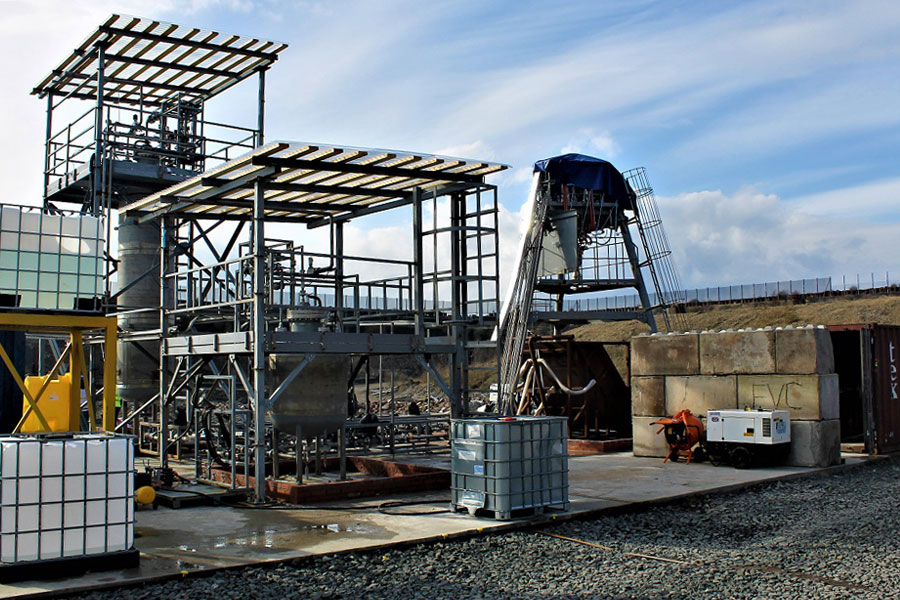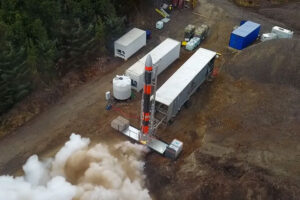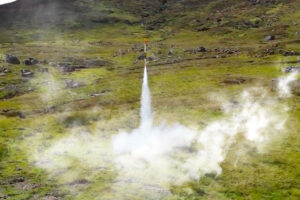Is Skyrora the UK’s SpaceX?
7th Jun 2020
Now that the initial excitement of the SpaceX launch from last weekend has slowed down a little bit, it seems like a good time to drill down and explore exactly what this means for the UK. We will take an almost forensic look at both sides of the Atlantic to determine how the UK is aligned with its friends across the water.
When SpaceX appeared on the scene in America it was the start of a complete transformation of how the country realised its own space ambitions. Suddenly there was talk of recoverable rockets, satellite constellations, rideshares, removing space debris, nanosats, smallsats. The language and ambitions were changing in a way that was never obvious when space was driven by government agencies and huge military manufacturers.
Elon Musk had created a new pace at which the US space industry was moving and with a huge desire to do things differently. And even more importantly for the country, at a significantly lower cost. The old, established behemoths no longer had a monopoly over lucrative government contracts and had shown no ability (or desire) to innovate. Boeing were constantly failing to deliver and experienced failure after failure. Lockheed Martin not much better. A fresh breed of innovator needed to step in… and step in he did. But Musk didn’t just fill a gap. He created a new one. He disrupted the long established industry and got people to stand up and take notice. Truly an architect of change.
SpaceX weren’t the first private space company to appear on the scene. Jeff Bezos’ Blue Origin was founded two years earlier. It just seems that Musk had an advantage – he was already at the forefront of an innovative, disruptive enterprise. He had a proven track record in disrupting industry. He was the natural leader in this new found ambition.
So now we find ourselves witnessing SpaceX sending American Astronauts up to the International Space Station from US soil, return the first stage of the rocket back to earth (landing on its feet) for reuse in a future mission. Something that government funded Lockheed Martin and Boeing could not even imagine possible – or at least if they did they showed no willingness or ability to demonstrate so.
SpaceX made history in 2008 when it became the first private company to send a liquid-fuelled rocket into orbit, a few months later winning a NASA contract to supply ISS – worth $1bn. And they haven’t stopped since.
Crossing back over the water to look at the UK’s commercial space industry and how that compares to the US, which obviously had a distinct advantage with the existence of a space manufacturing industry and likely all the regulatory infrastructure in place. The UK is starting more or less from scratch and still doesn’t have the legal framework in place to accommodate launch by private companies.
When the UK first announced its plans it rolled out the old behemoths that were partly responsible for holding back US ambitions, with Lockheed Martin being gifted the bulk of an initial funding package to take the UK into launch. And yet, there has been absolutely no sign of any progress from the US giant. Not a great start.
Are Skyrora the UK’s SpaceX?
The main signs of progress we have seen on UK soil is from the private companies that plan to be part of the UK’s new space industry. The closest we have found to the SpaceX model is Skyrora. They have come across as innovative, slick and agile. Only recently they released a video of a static rocket launch which sent the British media into a frenzy.
We covered it here:
https://orbitaltoday.com/2020/05/26/the-uks-space-ambitions-took-a-step-closer-recently/
Skyrora have apparently developed their own fuel from non-recyclable plastic, which is the sort of innovation that is setting them apart.
Another company involved in the UK space plans is Orbital Express Launch Ltd. (Orbex), but we haven’t heard anything too exciting from them. They had a flurry of activity when they opened a warehouse in Forres and put a prototype rocket on display. But since then nothing. Their role in the new space business is to build a rocket, not to build a spaceport, but a rocket – they were awarded a grant to help them do this and supposedly had around £30m in the bank… yet nothing.
Just as Lockheed Martin failed to show progress or innovation across the Atlantic and are clearly losing ground to SpaceX, we have seen no public progress from the firm here in UK and no indicators of any innovation other than some initial suggestions about an orbital manoeuvring vehicle back when the plans were initially made public.
Another thing that struck us when looking at the US/UK comparison was the fact that if SpaceX had used the same fuel setup as Skyrora then there may not have been a delay in the launch.
SpaceX had to postpone the initial launch because an episode of bad weather crept up on them. And because they use liquid oxygen they couldn’t really hold the vehicle for too long as the LOX is fairly volatile stuff that would then have had to be offloaded, brought back to its optimal temperature and then transferred back to the vehicle. Skyrora use a mix of Kerosene and HTP, a combination that doesn’t have the same temperature problems, meaning that their vehicle can sit completely fuelled for much longer periods of time.
Hopefully we can start to see a faster rate of pace in the UK once Covid-19 is behind us (or at least reasonably under control), as there certainly appears to be significant slow down from some quarters – while others leap ahead of the curve and frequently impress the crowds… yes, we’re talking about you Skyrora.






Thank you for your comment! It will be visible on the site after moderation.